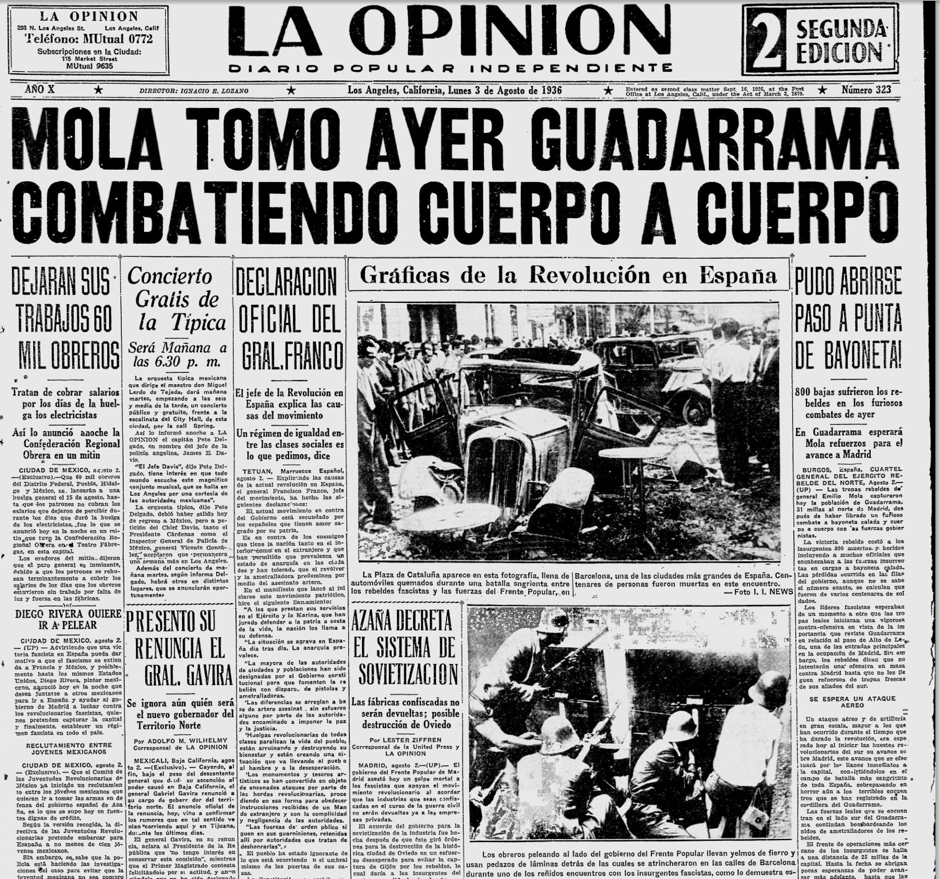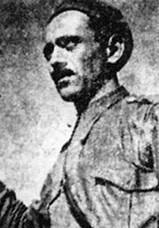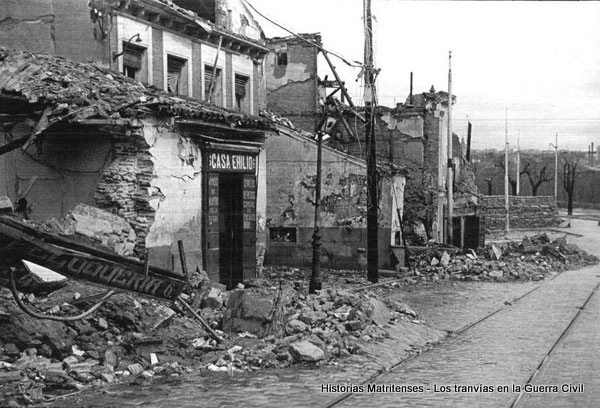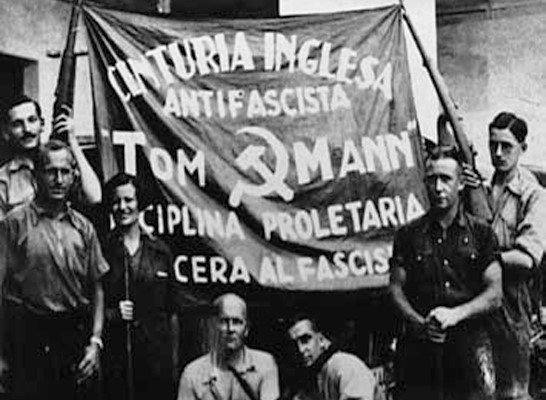Students Shine During Pandemic-Era Watt Award
Once again, the annual Watt Essay Award received a record number of submissions from around the world. The jury was especially impressed by the high quality of nearly all the submissions this year. Considering that these students produced this inspiring work during a pandemic as their schools or universities were moving to remote learning makes the group of students who submitted essays that much more outstanding.
There were three recipients at the pre-collegiate level. Hugh Goffinet, of James I. O’Neill High School in Highland Falls, New York explored the fascinating life of the Algerian Rabah Oussidhoum, who joined the French Army, moved to France and then fought and died for the liberation of Spain from the Fascists in his essay. Goffinet argues that Oussidhoum saw his efforts in Spain as part of a larger fight of North Africans against colonial oppression. Michelle Jennings of Apex Friendship High School in North Carolina submitted a moving story, “The Blood of Madrid,” about a young soldier lost on the streets of Madrid during the siege. A student at Marple Sixth Form College in Stockport, UK, James Mair produced an exceptional essay, “The Process of Radicalisation,” a study of the British Battalion of the International Brigade that draws on memoirs of the brigadiers and reveals the diverse political views within the Battalion.
We have not seen such high numbers of submissions for the collegiate and graduate awards before. Emmaline Bennett, a student at Columbia University, wowed the jury with her exquisitely argued essay “Cities of Defeat: Spanish Civil War Refugees and the French Concentration Camps of 1939.” Based on deep research in the Spanish archives, Bennet’s essay examines the lives of Spanish internees and how their experiences were tied to French politics of exclusion.
The jury read chapters from fifteen exceptionally strong dissertations, a reminder that we are in the midst of a new wave of innovative scholarship on Spanish Civil War by a new generation of students that is highlighting the global significance of the conflict. Carlos Nava of Southern Methodist University received the award for his chapter “The Mexican-American Press and the Spanish Civil War,” which examines an overlooked Mexican-exile press in the United States. Nava convincingly shows how the press took a special interest in the Spanish Civil War and had a more conservative stance toward the Spanish Republic than Mexico and criticized the Mexican government for supporting the Republic. Carlos is a two-time winner of the award, having also received the Watt in 2015 as an undergraduate.
The jury for the Watt award was comprised of Angela Giral (Columbia University), Joshua Goode (Claremont Graduate University), Gina Herrmann (University of Oregon), Jo Labanyi (New York University) and Aaron Retish (Wayne State University). The George Watt Memorial Essay award honors the memory of Abraham Lincoln Brigade veteran George Watt (1914-1994), a social worker, writer, and lifelong activist central to the creation of ALBA.
Pre-collegiate awards
Hugh Goffinet
This essay covers the life and service of Rabah Oussidhoum, an Algerian battalion commander who was killed in action in Miraflores, Spain. He served in Spain to prove to the world that not all North Africans were serving the forces of Fascism (a nod to the Moroccan Regulares) and that many were ready, willing and able to fight back and defend Spanish Democracy. Not only was he a staunch anti-fascist, but he was also a staunch anti-imperialist. Oussidhoum was an early member of the Algerian Communist Party and a staunch believer in Algerian independence, even going as far as attempting to defect to the forces of Abd El-Krim as a young NCO in the French Army during the Rif War. (Read the whole text here.)
Michelle Jennings
Set during the Siege of Madrid, “The Blood of Madrid” follows a young soldier named Geraldo fighting for the Republicans against Franco’s army. Geraldo gets separated from his fellow soldiers after following what he believes to be an enemy soldier, only to discover he is chasing a phantom; upon realizing this, he retraces his steps back toward the trenches in the southern part of the city. He picks his way through the war-torn streets of his childhood, anticipating that he will be shot with every step, as the dusk gathers and the threat of night bombings looms. After an encounter with an enemy soldier, Geraldo hears shouting nearby, and he has no way of being certain whether the voices belong to friends or foes…. (Read the whole text here.)
James Mair
In this essay, I examine the political convictions and self-perceptions of International Brigade volunteers during the Spanish Civil War of 1936-39, exploring the transformative and occasionally revolutionary processes of political development that drove so many men to lay down their lives for the cause of anti-fascism. Whilst many previous histories have heavily emphasised the liberal democratic motivations of certain volunteers, here it is those volunteers that saw the conflict in terms of class struggle and social revolution that will be receive greatest attention. It was not just the Anarchists of the Aragon that were preoccupied with the establishment of a new social order; this essay examines the dozens of international communists that held visions of a better tomorrow when they departed for the sunny plains of Spain in January 1937. (Read the whole text here.)
Undergraduate Award
Emmaline Bennett
This thesis examines the origins and functions of the concentration camps which were established by the Daladier government in 1939 to intern over 300,000 refugees from the Spanish Civil War. It situates this policy of mass internment within the context of an increasingly xenophobic, restrictionist policy on immigration which, over the course of the 1930s, steadily eroded France’s status as a “nation of asylum” and as a defender of universal human rights. It also examines literary accounts and oral histories produced by former internees to show how the camps were portrayed as sites of nothingness, idleness, and death, and how these subjective experiences were a direct product of a strategy on the part of French government officials to strip refugees of their prior political identities and to exclude them from the realm of citizenship and national belonging. It argues that the concentration camps served as the lynchpin of an entire system of surveillance and repression which provided the infrastructure for the Vichy regime’s own, far more elaborate system of concentration camps. However, it also suggests that we should think of these camps not only as sites of repression, but also as fertile ground for the formation of new bonds of solidarity and belonging out of the ruins of exile and defeat. (Read the whole text here.)
Graduate Award
Carlos Nava
“The Mexican-American Press and the Spanish Civil War” is one chapter of a larger thesis that examines how the Spanish Civil War affected several diverse Hispanic communities in the United States. Utilizing a transnational approach, this essay explores the unique position of the Mexican exiled press in the American Southwest. Unlike their Spanish language counterparts in the Eastern United States who favored the Spanish Republic, the Mexican expatriated press overwhelmingly leaned in favor of the Spanish Nationalists and were critical of Mexico’s involvement in the Spanish Civil War. The circumstances surrounding this stark difference were a direct result of the Mexican Revolution of 1910.
Before the revolution, the Mexican expatriated press in the United States was a vastly liberal institution enmeshed in revolutionary ideas. During the regime of Mexican President Porfirio Díaz, the open border between the U.S. and Mexico allowed revolutionary writers to seek refuge in the United States. Between 1885 and 1910, several Mexican revolutionary publications relocated to the American Southwest. However, by the 1930s the conflict in Mexico was over and the Mexican revolutionary press in the Southwest had dwindled. Yet, the fall of the Diez regime did not mark the end of the Mexican origin press in the United States. Between 1900 and 1930, one million Mexicans crossed the border into the United States. Many were refugees and political exiles, including Mexican conservative writers who resettled in the United States and established the Mexican exiled press. They represented the exiled conservative elite of Mexican society. Along with other conservative publications in Mexico, they repeatedly criticized the domestic and foreign policies of Mexican President Lazaro Cardenas, including his administration’s support for the Spanish Republic, and some regularly published pro-Nationalist editorials during the Spanish Civil War. (Read the whole text here.)


















Great to see a new generation of writers and researchers contributing to our understanding of this complex conflict. Our father was last Commander of the British Battalion. One of my brothers was called John Gates Wild !
Salud!
Mike Sam Wild ( aged 80)
North Nottinghamshire